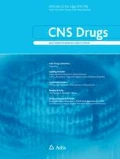Abstract
Alcohol withdrawal is a common condition encountered in the hospital setting after abrupt discontinuation of alcohol in an alcohol-dependent individual. Patients may present with mild symptoms of tremulousness and agitation or more severe symptoms including withdrawal seizures and delirium tremens. Management revolves around early identification of at-risk individuals and symptom assessment using a validated tool such as the revised Clinical Institute Withdrawal Assessment for Alcohol score. Benzodiazepines remain the mainstay of treatment and can be administered using a front-loading, fixed-dose, or symptom-triggered approach. Long-acting benzodiazepines such as chlordiazepoxide or diazepam are commonly used and may provide a smoother withdrawal than shorter-acting benzodiazepines, but there are no data to support superiority of one benzodiazepine over another. Elderly patients or those with significant liver disease may have increased accumulation and decreased clearance of the long-acting benzodiazepines, and lorazepam or oxazepam may be preferred in these patients. Patients with symptoms refractory to high doses of benzodiazepines may require addition of a rescue medication such as phenobarbital, propofol or dexmedetomidine. Anticonvulsants (carbamazepine, valproate, gabapentin) may have a role in the management of mild to moderate withdrawal. Other medications such as β-antagonists or neuroleptics may offer additional benefit in select patients but should not be used a monotherapy.
Similar content being viewed by others
References
Kosten TR, O’Connor PG. Management of drug and alcohol withdrawal. NEJM. 2003;348(18):1786–95.
Wittchen HU, Jacobi F, Rehm J, et al. The size and burden of mental disorders and other disorders of the brain in Europe 2010. Eur Neuropsychopharmacol. 2011;21(9):655–79.
Carlson RW, Kumar NN, Wong-Mckinstry E, et al. Alcohol withdrawal syndrome. Crit Care Clin. 2012;28:549–85.
Bird RD, Makela EH. Alcohol withdrawal: what is the benzodiazepine of choice? Ann Pharmacother. 1994;28:67–71.
McKeon A, Frye MA, Delanty N. The alcohol withdrawal syndrome. J Neurol Neurosurg Psychiatry. 2008;79:854–62.
DeBellis R, Smith BS, Choi S, Malloy M. Management of delirium tremens. J Intensive Care Med. 2005;20:164.
Lejoyeux M, Solomon J, Ades J. Benzodiazepine treatment for alcohol-dependent patient. Alcohol Alcohol. 1998;33(6):563–75.
Reoux JP, Saxon AJ, Malte CA, et al. Divalproex sodium in alcohol withdrawal: a randomized double-blind placebo-controlled clinical trial. Alcohol Clin Exp Res. 2001;25(9):1324–9.
Saitz R, O’Malley SS. Pharmacotherapies for alcohol abuse: withdrawal and treatment. Med Clin North Am. 1997;81:881.
Hoffman RS. Management of moderate and severe alcohol withdrawal syndromes. In: Traub SJ, editor. UpToDate. Waltham: UpToDate; 2013.
American Psychiatric Association. Diagnostic and statistical manual of mental disorders. 5th ed. Arlington: American Psychiatric Association; 2013.
Sulivan JT, Sykora K, Schneiderman J, et al. Assessment of alcohol withdrawal: the revised clinical institute withdrawal assessment for alcohol scale (CIWA-Ar). Br J Addict. 1989;84:1353–7.
Wetterling T, Kanitz R, Besters B, et al. A new rating scale for the assessment of the alcohol-withdrawal syndrome (AWS Scale). Alcohol Alcohol. 1997;32(6):753–60.
Sessler CN, Gosnell MS, Grap MJ, et al. The Richmond agitation-sedation scale: validity and reliability in adult intensive care unit patients. Am J Respir Crit Care Med. 2002;166(10):1338–44.
Mayo-Smith MF, Beecher LH, Fischer TL, et al. Management of alcohol withdrawal delirium. An evidence-based practice guideline. Arch Intern Med. 2004;164:1405.
Amato L, Minozzi S, Vecchi S, Davoli M. Benzodiazepines for alcohol withdrawal. Cochrane Database Syst Rev. 2010(3):CD005063.
Holbrook AM, Crowther R, Lotter A, et al. Meta-analysis of benzodiazepine use in the treatment of acute alcohol withdrawal. CMAJ. 1999;160:649.
Saitz R, Mayo-Smith MF, Roberts MS, et al. Individualized treatment for alcohol withdrawal. A randomized double-blind controlled trial. JAMA. 1994;272:519.
Mayo-Smith MF. Pharmacological management of alcohol withdrawal: a meta-analysis and evidence-based practice guideline. JAMA. 1997;278(2):144–51.
Kirkwood CK, Melton ST. Anxiety disorders I: generalized anxiety, panic, and social anxiety disorders. In: DiPiro JT, Talbert RL, Yee GC, Matzke GR, Wells BG, Posey LM, editors. Pharmacotherapy: a pathophysiologic approach. 7th ed. New York: McGraw-Hill; 2008. p. 1161–78.
Peppers MP. Benzodiazepines for alcohol withdrawal in the elderly and in patients with liver disease. Pharmacotherapy. 1996;16(1):49–58.
Rathlev NK, D’Onofrio G, Fish SS, et al. The lack of efficacy of phenytoin in the prevention of recurrent alcohol-related seizures. Ann Emerg Med. 1994;23:513.
McCowan C, Marik P. Refractory delirium tremens treated with propofol: a case series. Crit Care Med. 2000;28:1781.
Muzyk AJ, Fowler JA, Norwood DK, et al. Role of α2-agonists in the treatment of acute alcohol withdrawal. Ann Pharmacother. 2011;45:649–57.
Rayner SG, Weinert CR, Peng H, et al. Dexmedetomidine as adjunct treatment for severe alcohol withdrawal in the ICU. Ann Intensive Care. 2012;2:12.
Minozzi S, Amato L, Vecchi S, Davoli M. Anticonvulsants for alcohol withdrawal. Cochrane Database Syst Rev. 2010;(3):CD005064.
Uzbay TI. Atypical antipsychotic drugs and ethanol withdrawal syndrome: a review. Alcohol Alcohol. 2012;47(1):33–41.
Keating GM. Sodium oxybate: a review of its use in alcohol withdrawal syndrome and in the maintenance of abstinence in alcohol dependence. Clin Drug Investig. 2014;34:63–80.
Acknowledgments
The author has no financial or ethical interests to disclose relevant to this submission. No financial support was received for this article from any source.
Author information
Authors and Affiliations
Corresponding author
Rights and permissions
About this article
Cite this article
Perry, E.C. Inpatient Management of Acute Alcohol Withdrawal Syndrome. CNS Drugs 28, 401–410 (2014). https://doi.org/10.1007/s40263-014-0163-5
Published:
Issue Date:
DOI: https://doi.org/10.1007/s40263-014-0163-5




